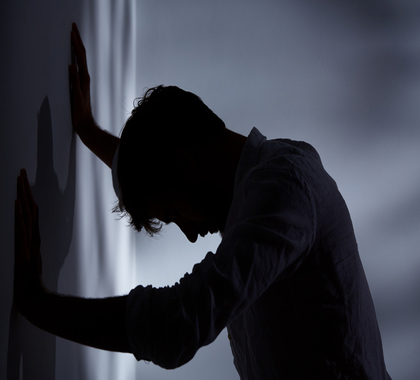Gov. Gretchen Whitmer put the brakes on construction of a $115-million renovation and addition to the hospital in March, citing unforeseen costs. The new facility, which the legislature approved in 2017, was planned to hold 200 beds and span 225,000 square feet.
Hospitalization or Incarceration
The decision is the latest instance in a nationwide trend of eliminating large inpatient mental health treatment facilities, a movement that took off in the 1980s. Proponents of deinstitutionalization argue “insane asylums” dehumanize and stigmatize those with mental illness. They advocate for the exclusive use of family care and community-based health centers instead.
John Snook, executive director of the Treatment Advocacy Center, says in far too many cases the untreated mentally ill end up incarcerated.
“It’s cruel to these patients to not have a mental hospital for them,” Snook said. “If it were any other illness and we said we just can’t afford to open a hospital for them but hopefully they can get the treatment they need at a jail, people would be up in arms.”
Michigan state Rep. Mary Whiteford (R-Casco Township), who chairs the House Health and Human Services budget committee, says she recognizes there is a real need for mental hospitals.
“I just had a tour of the Kalamazoo Psychiatric Hospital,” Whiteford said. “There has been a patient who’s been living there for 50 years and can’t go back into the community. We still need the safety net that mental hospitals provide. We just need to be smart about it.”
Putting Public at Risk
The decline of mental hospitals has received new scrutiny with the increase in mass shootings and rising homelessness and drug abuse.
The Treatment Advocacy Center’s founder, psychiatrist E. Fuller Torrey, wrote about the connection between mental illness and mass murder in a Wall Street Journal op-ed on August 4, after back-to-back shootings in El Paso, Texas and Dayton, Ohio killed 31 people.
“With the best of intentions and the worst of planning, America has emptied out its public psychiatric hospitals without ensuring that the released patients would receive the necessary treatment to control their symptoms,” Torrey wrote. “What did we think would happen?”
Denied Help
A study released by the U.S. Secret Service, “Mass Attacks in Public Spaces: 2018,” found nearly two-thirds of the perpetrators of mass attacks experienced mental health symptoms prior to their attacks, particularly psychosis and suicidal thoughts. Some had been temporarily hospitalized for treatment or prescribed psychiatric medications before their attacks.
Snook says the pattern is not caused by a sudden spike in mental illness but instead is the result of a broken system.
“There’s a very legitimate effort to protect against the stigmatization that the mentally ill are violent, but the corollary conversation that needs to happen is about why the system has failed so miserably that someone is so sick they’re a danger to society,” Snook said. “Why is the system least responsive when it should be at its most responsive?”
Spending Priorities
Whiteford says government health care fails to respond where treatment is needed most.
“I totally disagree with the state’s claims that there’s not enough money available,” said Whiteford. “There’s absolutely enough funding. We’re just not spending it as smartly as we should be.”
Michigan spends $60,606,400 per year on prisoners’ mental health care, according to a 2018 Michigan House Fiscal Agency report. An even bigger factor affecting the state budget is the expansion of Medicaid to able-bodied adults, which lawmakers approved in 2013. Based on House Fiscal Agency projections, the Medicaid expansion will cost Michigan taxpayers $430 million each year starting 2020.
The 2019-20 fiscal year budget submitted by Michigan’s Republican-majority House and Senate includes a provision that operating funds appropriated for the Caro Center expansion must be used at that facility. Gov. Whitmer, who is a Democrat, has yet to sign off on the deal for the new fiscal year, which begins on October 1.
Whiteford says the Caro Center provision is a step in the right direction.
“If individuals are at risk of harming themselves or others, we need to find the best environment for them while retaining their rights as human beings,” Whiteford said. “These are people who need to be in a very inclusive environment that will keep them and their communities safe.
“There’s not one magic pill to fix this, Whiteford said. “We need an all-inclusive approach, and mental hospitals are one of those options.”
Madeline Peltzer ([email protected]) writes from Hillsdale, Michigan.




